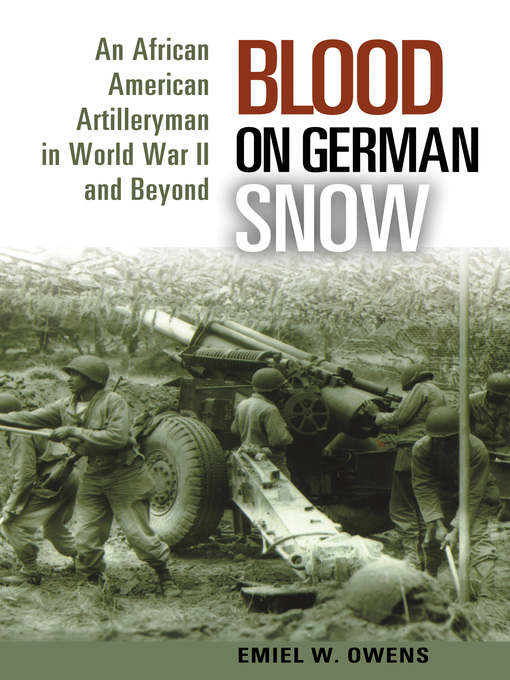Emiel Owens served his country in the 777th Field Artillery, involved in actions from Omaha Beach to the occupation army in the Philippines. Like the rest of the U.S. Army at the time, the 777th was a segregated unit. Remarkably few memoirs by African Americans have been published from the World War II era, making OwensÆs account especially valuable. Because he situates his military experience in the larger context of his life and the society in which he lived, his story also reveals much about the changing racial climate of the last several decades. A native Texan, Owens recounts his early experiences in a small, rural school outside Austin during the hard times of the Depression. In 1943, he was drafted into the army, landing in England in August 1944. Ten days later he was on Omaha Beach. By November 3 Owens and his unit were supporting the 30th Infantry Division as it attacked German towns and cities leading into the Ruhr Pocket and the Huertgen Forest. Owens starkly portrays the horror of the Kohlscheid Penetration. He was awarded a certificate of merit for his actions in that theater. With help from the G.I. bill, Owens returned to college and then to graduate school at Ohio State University, since universities in his home state were still closed to African Americans. He earned a Ph.D. in economics, which led to a productive academic and consulting career. This is a uniquely captivating story of an African American manÆs journey from a segregated Texas town to the battlefields of Europe and on to postwar success in a world changed forever by the war Americans—black and white—had fought.
- Hot and Ready eBooks!!
- New eBook additions
- Try something different
- Most popular
- Let's Cook!
- Happily Ever After
- See all
- Hot and Ready eAudio!!
- New audiobook additions
- Try something different
- Most popular
- Award Winners
- Full Cast Productions
- Happily Ever After
- See all

